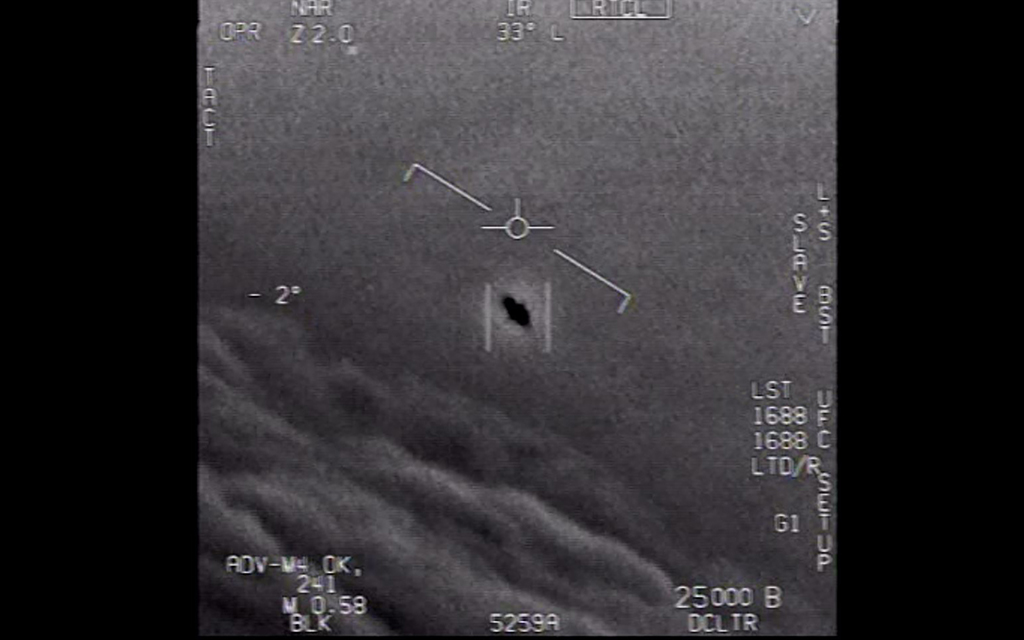WASHINGTON – After years of researching UFOs, Phoenix resident Shane Hurd thinks the research may be finally be entering what he hopes is a “golden age.”
“The taboo … is lifting and the government is taking it seriously,” said Hurd, the assistant director of the Arizona Mutual UFO Network. “And as I said, I think we’re even in a little bit of a golden age where we stand a real possibility of getting some very meaningful information from the government and … from scientists.”
Hurd and other researchers are encouraged by the federal government’s recent interest in explaining Unidentified Anomalous Phenomena – the new name for what used to be called UFOs.
The Air Force created the All-domain Anomaly Resolution Office (AARO) in July 2022 to study and improve data collection and potential safety threats posed by UAPs. The office’s mission it to “follow the science wherever it leads.”
And the issue made headlines this summer when the House Oversight Committee’s Subcommittee on National Security held a hearing on the issue that included testimony from three military veterans pushing for the government to be more forthcoming about UAPs.
Arizona residents may have a head start on the government: The private National UFO Reporting Center lists Arizona as one of the the top 10 places in North America for UAP sightings. The center, which has more than 170,000 sighting reports in a database that goes back nearly 50 years, lists 4,498 sightings in the state.
“For Arizona, we see a lot of cases around the metro Phoenix area,” said Hurd. “It stands to reason in terms of population and more for people maybe looking up and noticing, but we also have a lot of counts around the border with Mexico.”

A still shot from video of a U.S. Navy F/A-18 jet crew’s encounter with an unexplained anomalous phenomena (UAP). (Photo courtesy All-Domain Anomaly Resolution Office (AARO))
One of those sightings, late in the evening of March 13, 1997, became known as the Phoenix Lights. Almost 10,000 people over several southwestern states reported seeing a series of lights across the sky. One of those people was Dr. Lynne Kitei, the creator of the Phoenix Lights Network.
“The mass sighting has now become the most witnessed, most documented, most important mass anomalous sighting in modern history, if not all of history,” Kitei said.
The Phoenix Lights inspired Kitei to do more research.
“Arizona has had sightings for decades, if not centuries,” she said. “These phenomena have been documented not only for centuries but since the beginning of human documentation itself.”
AARO is working on a historical record with reports from government employees, service members and military contractors with direct knowledge of any events or documentation of UAPs from as far back as 1945.
The office’s website says it “uses a rigorous scientific framework and data-driven approach to better understand UAP,” but that has not produced any evidence of extraterrestrial technology. It says it will not rush to conclusions in its research, and notes that UAPs are often found out do be balloons, celestial events, unidentified aircraft, drones or satellites.
Christian Stepien, an official with NUFORC, welcomes the Air Force’s newfound interest, but said the U.S. government has not always been open to the idea of the existence of UAPs.
“The government has basically been trying to keep a lid on it since the 1940s,” Stepien said. “For a lot of years they were trying to suppress it and tell people that they were crazy if they saw a UFO.”
Stepien said that although progress has been made, he still feels that there is a “roadblock” in place on the subject.
“It’s like a brick wall, you can’t get through to any of the real stuff …. Somewhere deep within the government, somebody’s got a pretty tight lock on this,” he said.
“It’s time to stop debating whether these things are real or not. They absolutely are real. There is no question about it,” Stepien said. “The question now is what are we going to do about it?”
For researchers like Kitei, the answer is obvious. People can start to take the issue seriously and keep researching.
“I always say the data speaks for itself,” said Kitei. “You know, if you choose, and it is a choice to look at it, you might learn and grow … people can decide for themselves, like I said earlier, every person in their own time.”
